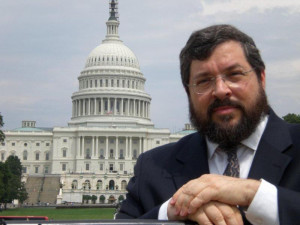 Oral arguments before the U.S. Supreme Court took place today in the case of Masterpiece Cakeshop v. Colorado Civil Rights Commission, which involves the rights of a Christian baker who was punished by the State of Colorado for refusing on religious grounds to bake and design a wedding cake for the “marriage” of two men.
Oral arguments before the U.S. Supreme Court took place today in the case of Masterpiece Cakeshop v. Colorado Civil Rights Commission, which involves the rights of a Christian baker who was punished by the State of Colorado for refusing on religious grounds to bake and design a wedding cake for the “marriage” of two men.
A particularly noteworthy comment came from Justice Anthony Kennedy, who told a lawyer for the state that “tolerance is essential in a free society, but it’s important for tolerance to work in both directions.”
“It seems to me,” Justice Kennedy said, “the state has been neither tolerant or respectful” of the baker’s views.
The Justice also quoted from the remarks of one commissioner on the state civil rights panel that ruled against the baker, who called the cake shop owner’s position “despicable,” citing that inflammatory characterization as evidence of “hostility to religion.”
Justice Kennedy, who has written major rulings in favor of gay rights, is widely believed to be the key vote in this case. His concern about Colorado’s denigration of the baker’s religious beliefs reflects an important point of the amicus curiae brief filed by Agudath Israel of America in the case.
Authored by Washington-based attorney Jeffrey Zuckerman, the Agudath Israel brief points out that the constitutional protection for free exercise of religion has been diluted in recent years by a number of court rulings that have severely limited its scope. Colorado should not be allowed, the brief contends, “to punish a religious believer because he adhered to his core religious beliefs by refusing to do something that was anathema to him.”
“American society stands at a crossroads,” commented Rabbi David Zwiebel, Agudath Israel’s executive vice president. “The outcome of this case could well determine whether the United States remains faithful to the Founding Fathers’ unwavering commitment to the religious freedom of its people, or whether it reverses course and relegates religious practitioners to the ranks of second-class citizenry.”

The absurdity of Colorado’s position takes the cake.
I’m not sure we should be for the baker. What about if someone says his religion doesn’t let him serve jews??
Then you go and find a baker that serves jews, and give him your business.
The bakery is a public accommodation and should serve everyone. Nobody tells the baker whom to invite and serve in their own home. But once you invite all members of public into your store, you must sell to everyone regardless of one’s religion and orientation… what’s next, the Muslims do not sell to Hindus because they serve idols…
Chaim Get a grip, chill.
And if someone does want to serve you, you go somewhere else!
Anti that easy.
What happens when the baker doesn’t want to serve our community? does he have the right to do so?
and what happens when a kosher caterer is asked to serve clam chowder at an event? does the customer have the right to shut down the kosher caterer’s business?
It seems pretty simple to me that freedom of religion is a losing argument because you have freedom of religion only as long as it doesn’t go against the law. If your religion tells you to beat people up you obviously will get prosecuted for it. Therefore they are not even fighting that argument as the law is that you can’t discriminate against people that hold different beliefs. The argument they are trying to win with is a first amendment free speech argument, that making a custom cake is a form of expressing one self and one can not be forced in expressing their self in a way they don’t want to. That (hopefully) is a winning argument.
The baker is claiming to be an ‘artist’ and ergo his creations (cakes) are permitted because of free speech. Factually he was violating state law (just as the baker in OR was), that protects everyone, including Jews.
I’d like to address a mistake some of the commenters seem to making. The baker did not refuse service based on the customers religion, gender or orientation. His refusal was based on the purpose of the cake. His religion forbids him to participate in an immoral act which he would be facilitating by baking the cake.